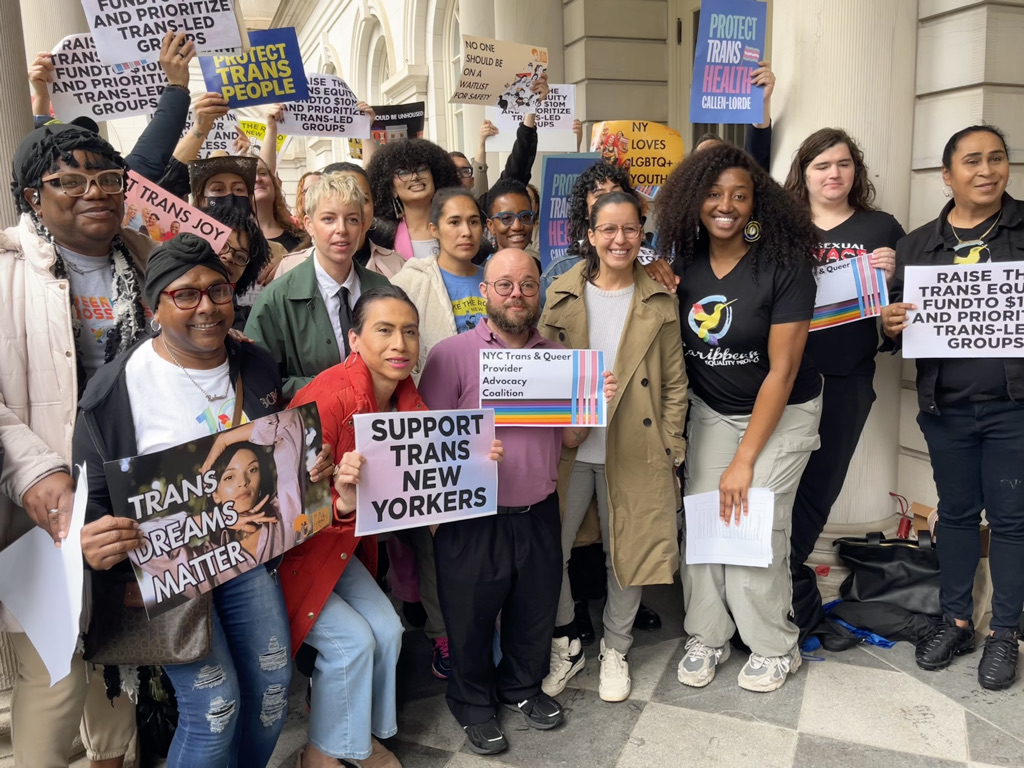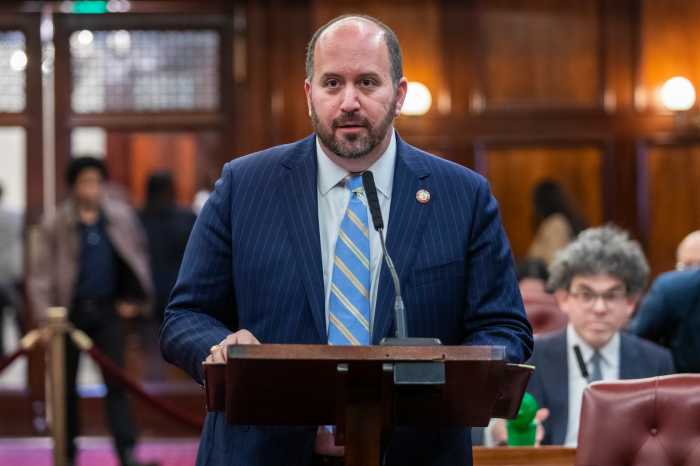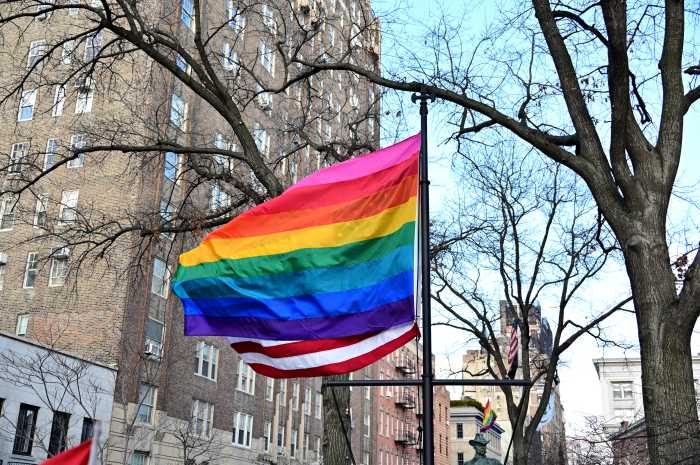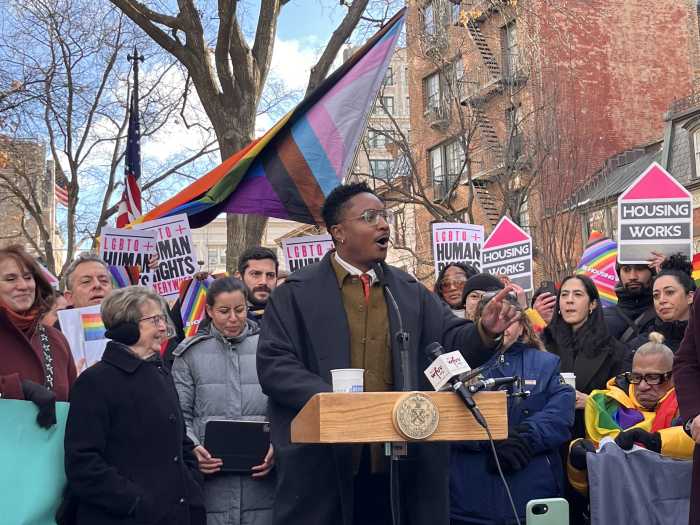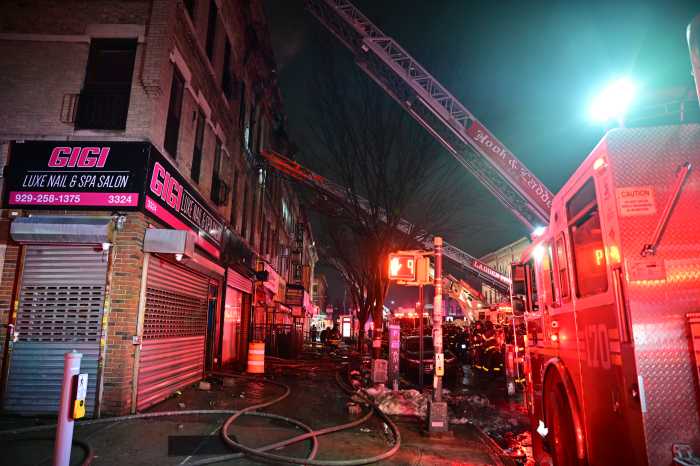Advocates huddled on the steps of City Hall in Manhattan on May 22 to urge lawmakers and Mayor Eric Adams to increase funding for trans individuals in the upcoming city budget in the face of urgent threats from the hostile federal government.
A group of organizations known as the NYC Trans & Queer Provider Advocacy Coalition — including the Ali Forney Center, Callen-Lorde Community Health Center, Caribbean Equality Project, New York Transgender Advocacy Group (NYTAG), and Trans formative Schools — stood with lawmakers to urge the city to allocate $15 million for gender-affirming care, $10 million for housing for LGBTQ youth and young adults, and $10 million for a fund dedicated to uplifting trans-led organizations serving trans New Yorkers.
“We’re asking for the bare minimum of $35 million,” Manhattan Councilmember Christopher Marte said. “That’s a drop in the [bucket in the] city budget; this budget is going to be $115 billion. But the biggest statement we can make — not just to DC, but to haters all across this country — is investing in trans youth and investing in an opportunity for them to feel safe and to thrive here in our community.”
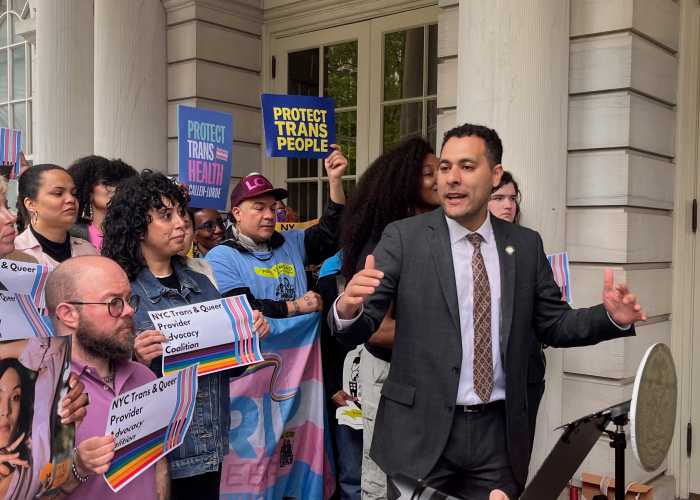
The Trans Equity Fund, inspired by a similar fund in California, originated at the state level in 2022 as part of an effort to boost funding for trans-led organizations. The New York State-based Lorena Borjas Transgender Wellness and Equity Fund, named after a trans activist who died in 2020, has gradually grown since its inception.
A separate but similar fund in New York City, labeled in the budget as Trans Equity Programs, received $3.2 million in the last budget. Advocates are looking to triple that funding in this year’s upcoming budget.
The City Hall rally, led by Caribbean Equality Project’s Tiffany Jade Munroe, came just hours after the GOP-led House of Representatives passed an alarming bill that would restrict the use of Medicaid or the Affordable Care Act to cover gender-affirming care, further jeopardizing the rights of trans, non-binary, and gender non-conforming individuals across the nation.
Trans rights are also facing threats at the local level in New York City, where multiple New York City-based hospitals pulled back on some gender-affirming care for youth earlier this year in response to a Trump administration executive order vowing to bar federal funding for institutions providing gender-affirming care to individuals 19 years of age or younger. That executive order was blocked by federal courts on both coasts and Attorney General Letitia James warned providers that they were obligated under state law to continue providing care without discriminating on the basis of sex or gender identity.
LGBTQIA+ Caucus Co-Chair Tiffany Cabán of Queens emphasized the need for the funding boost by pointing to disparities such as the high rates of housing insecurity among trans and queer youth, who she said make up 40% of the unhoused youth population in the five boroughs.
“That’s a result of policies, systems, and budgets that have consistently failed to meet the needs of our most vulnerable young people,” Cabán said.
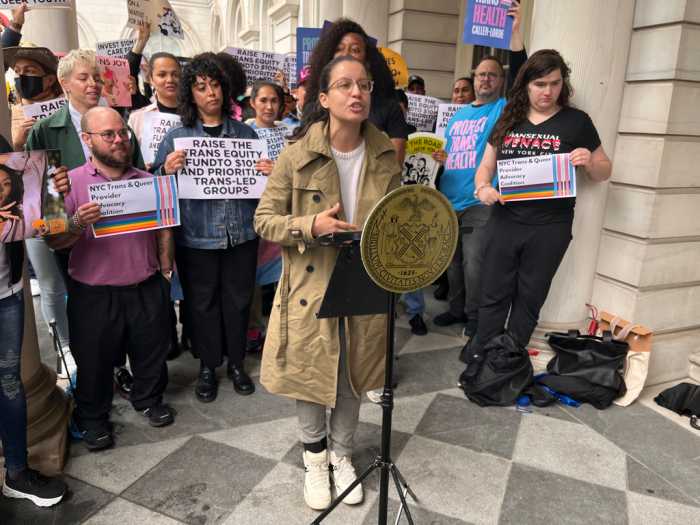
In a plea to the mayor, Cabán added: “To Eric Adams, the Council is ready to do more; Speaker Adrienne Adams is ready to do more. The question is, are you?”
Athena Rivera, a communications coordinator at NYTAG, stressed that many trans-led organizations are directly impacting the lives of trans New Yorkers in a positive way, but those organizations often lose out on funding opportunities.
“Expanding the Trans Equity Fund to $10 million is a crucial step forward to support the work our organizations are putting into our community to make sure everyone is being seen, heard, and valued,” Rivera said.
Other speakers included Alaina Daniels, the executive director of Trans formative Schools, which operates a free after school program for trans, queer, non-binary, and gender-expansive students ages 9 to 15. Daniels and Trans formative Schools have been active in standing up for trans youth at Community Education Council District 2 meetings, but they’re also advocating for dedicated funding for trans individuals in the city budget.
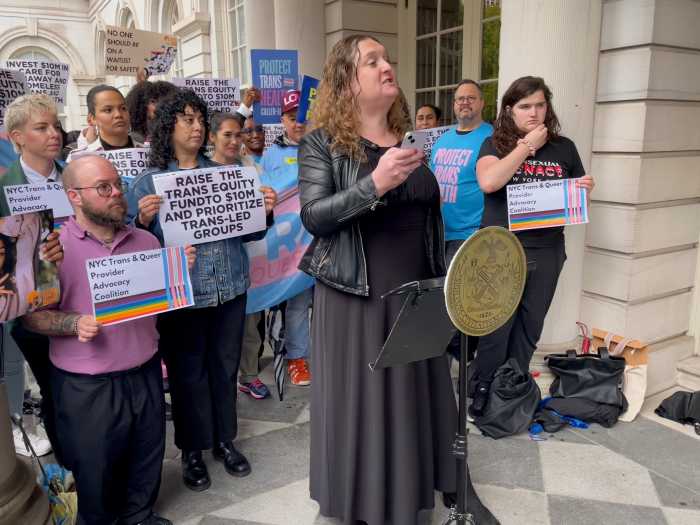
“Cisgender city leadership is currently spending 63% of the trans equity fund on cis-led organizations,” Daniels said. “That has to change. Fund us to lead.”
The funding is so critical that it would not be acceptable to delay any increases, according to Bryan Ellicott-Cook of SAGE – Advocacy & Services for LGBTQ+ Elders.
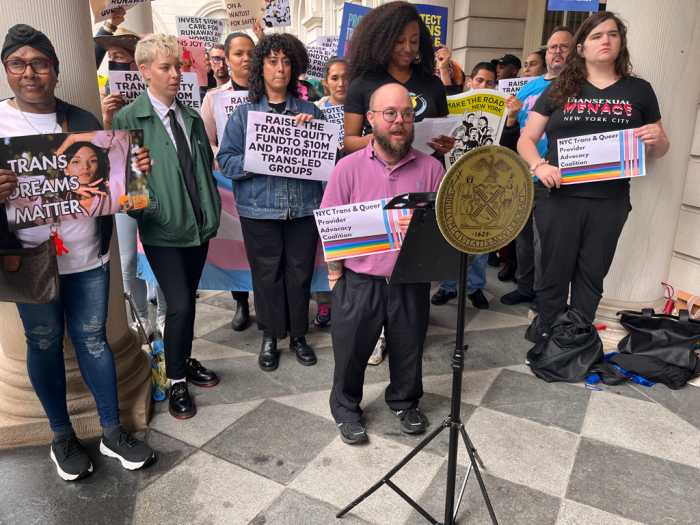
“These investments are not optional,” Ellicott said. “They are necessary for justice, for health, and for a future where we all can age with pride and dignity.”
The city budget is slated to be finalized next month. The next fiscal year begins on July 1.

